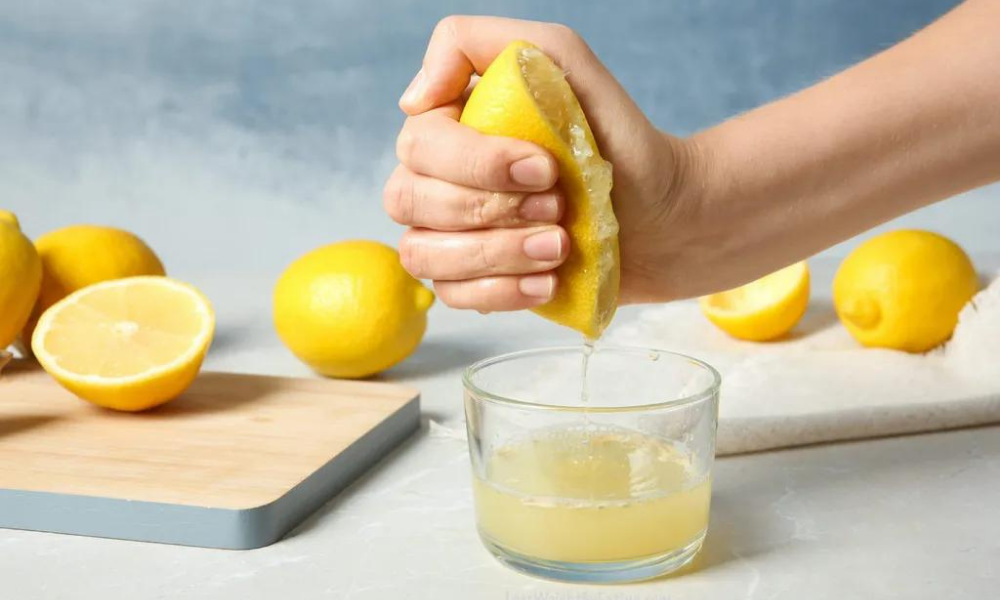

· By Doménica Palacios
The Quali-tea of Fruit Juice
Have you ever had a glass of natural freshly squeezed fruit juice and felt your whole body refresh and replenish just by that first sip? Here at Waku, we know that nothing compares to the natural flavor of fruit. That is why, we are committed to make our teas using the finest blend of ingredients combined with the deliciousness, freshness and overall greatness of fruit juice. We decided that if we wanted to create a natural and beneficial herbal tea with different fruity flavors, we should do it using the juice of those fruits directly into our mix.
Today, our four main flavors are: Raspberry Rose, Passion fruit, Ginger Lemon and Lemon. And for each of them we use the natural juice of the fruit it contains. In this Quali-tea edition, we will be sharing with you the fun facts, benefits and uses of fruit juice just so that you are certain that not only is this the best tasting option to include fruit, it is also the healthiest (and we think coolest). Take a look!
What is it?

Juicing involves grinding, squeezing, or pressing fresh fruit and/or vegetables for their juice. It’s a modern term for a long-standing practice of pressing harvested fruits for quick access to their nutrients. It extracts the juice from fresh fruits or vegetables. The liquid contains most of the vitamins, minerals and plant chemicals (phytonutrients) found in the fruit. However, whole fruits and vegetables also have healthy fiber, which is lost during most juicing.
Some believe that juicing is better than eating whole fruits and vegetables because your body can absorb the nutrients better and it gives your digestive system a rest from digesting fiber. They say juicing can reduce your risk of cancer, boost your immune system, remove toxins from your body, aid digestion and help you lose weight.
What are its benefits and nutritional facts?

Drinking fresh juice is an easy way to get a number of vitamins and minerals. Still, while research shows some support for juicing, the potential health benefits vary drastically depending on what’s exactly in the juice. Each variety of fruit juice will have slightly different nutrition facts. The amount of nutrients in your juice can depend on whether the fruits and vegetables are grown commercially or organically. Cooking or pasteurization can also reduce the nutrients available in juice.
Fruit juice generally provides a high amount of carbohydrates, mostly coming from the naturally-occurring fruit sugars. Making sure you are consuming 100% fruit juice is important in reducing extra sugars that might be added to juice beverages. In general, fruit juice is fat-free and does not contain a lot of protein either. The amount of vitamins and minerals in fruit juice is what makes it such a nutritious choice, and it also depends on the fruit, but generally it's a great way to access nutrients.
By drinking juice, your body can absorb nutrients quickly, without having to digest fibers and other components in whole foods. Juice also allows you to get a broader intake of vitamins and minerals — more so than you may be getting in your regular diet. If you don't consume many whole fruits and vegetables, it’s possible that you’re lacking in important nutrients.
Reduces inflammation: Fruit juices contain an array of antioxidants, compounds that help protect the body from inflammation and reduce the impact of free radicals on your body.
Helps the Immune function: Vitamin C is a nutrient found in many types of fruit juice, including, of course, lemon juice. But why is vitamin C so important? It's essential for strong connective tissue and healthy blood vessels. Vitamin C is also needed for normal immune system function.
Improves Digestive health: Prune juice is known for its role in bowel regularity. But there are other fruit juices that can also help promote bowel movements in those with constipation.
Adverse Effects

Many fruit juices are high in calories. Because of this, many dietitians recommend limiting fruit juice to no more than one serving per day. Whole fruits are better than fruit juice because they contain fewer calories, and because they also contain fiber. Drinking juice that is excessive in sugar also can lead to weight gain and even diabetes.
Luckily for you, Waku doesn't use any added sugar in its preparation! We use chicory root and stevia to sweeten our drinks (just a tiny bit) and get that incredibly delicious fruity herbal tea flavor without having to worry about caffeine, sugar or any sort of added chemicals.
Most people do not consume enough servings of fruit, and fruit juice is one way to do so! But remember that you also need the fiber that comes from eating the whole fruit in order to meet nutritional goals.
References
Is juicing healthier than eating whole fruits or vegetables?